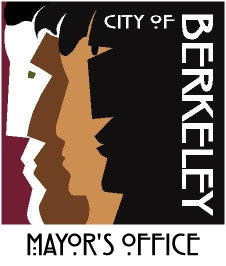Berkeley City Council Moves to Enable Blockchain Microbond Financing Program
BERKELEY CITY COUNCIL MOVES TO ENABLE BLOCKCHAIN MICROBOND FINANCING PROGRAM
Berkeley is slated to become one of the first cities in America to incorporate blockchain technology into its municipal bond market
BERKELEY–Last week, the Berkeley City Council voted unanimously to authorize the city manager to contract with a firm that will provide the professional services necessary to move forward with a microbond financing program.
“In expanding access to community investments by way of microbonds, Berkeley will simultaneously crowdsource additional funding for public projects while providing more individuals with investment opportunities,” said Mayor Jesse Arreguín. “I would like to thank Councilmember Ben Bartlett for bringing this approach to Berkeley and shepherding this project to fruition.
“In the wake of the Trump Era - a period during which Federal funding was regularly subject to the whims of a political despot - embracing community driven public financing provides a sustainable and secure alternative. Taking steps towards self-reliance is a responsible and forward thinking course of action to safeguard our coffers from changing political tides.”
“By enhancing transparency and access, investors will know exactly what their money is being used for as they can invest in our neighborhoods. We’re extremely proud to bring this innovative approach in municipal financing to the people of Berkeley and beyond.”
“Incorporating blockchain technology into our municipal bonds program promotes investment access and transparency echoing Berkeley’s commitments to inclusion and equity,” said Councilmember Ben Bartlett. “I am proud to serve in a city where novel approaches to governance are met with open minds and I am grateful to Mayor Arreguín for his support.”
Traditionally, cities fund capital projects through national public finance investment banks who then resell the debt to their institutional and retail clients. Unlike the traditional municipal bond market which can be opaque and have high barriers to entry, microbonds structured using blockchain technology expand direct-to-consumer investment opportunities for the community.
Blockchain technology, or a distributed digital ledger, allows for cost-savings and increased disclosure of secondary market trades and ongoing bond administration. This has the effect of changing the way municipal bonds do business by increasing accessibility, transparency, flexibility, speed, and makes them a direct-to-consumer product which builds community.
In the last few years, the use of minibonds has increased as issuers look to raise funds for capital projects while tapping local investors who are interested in investing but are typically restricted given the $5,000 minimum denomination of a traditionally-structured municipal bond. Minibonds are sold in increments significantly less than $5,000 with the most popular increments being $1,000 and $500. “Microbond” refers to bond denominations of $100 or less, but there is no common industry standard for use of that term and some issuers elect to use the term minibond to refer to bonds denominated in increments as low as $25.
Berkeley took its first steps to pioneer this application of blockchain technology in 2019.
